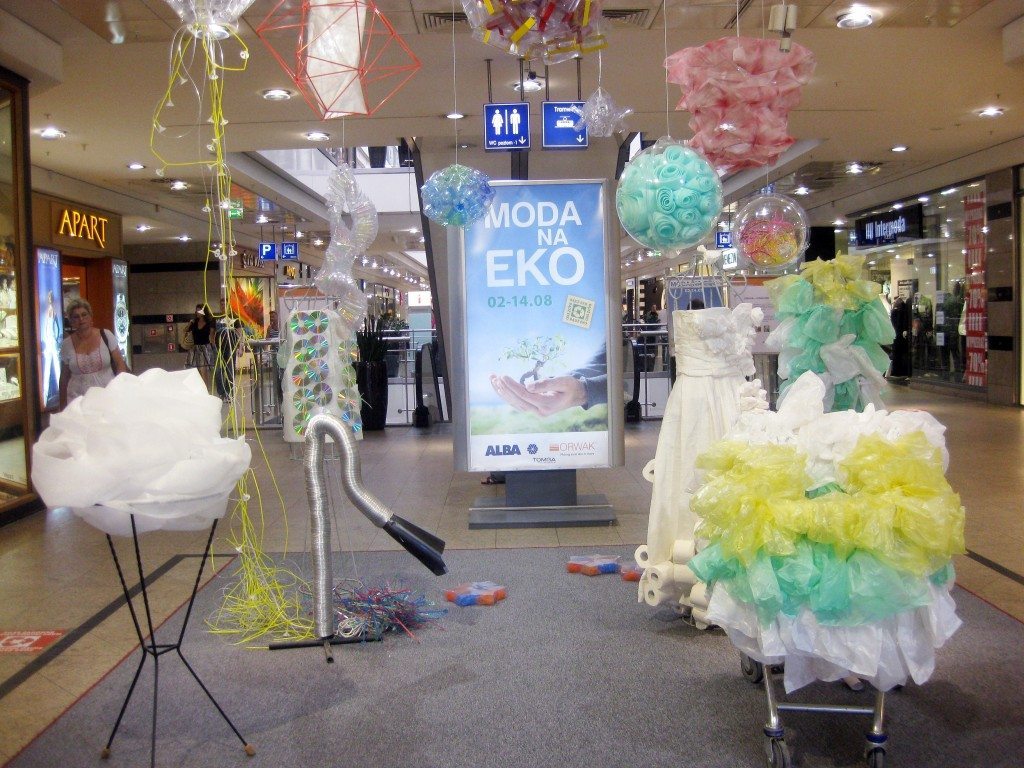Our associate editor and resident green blogger, Kasia Marciszewska, is currently traveling in Europe. While there, she stopped by her native country of Poland. Ever vigilant about the subject of sustainability, Kasia sought out Poland’s green side.
Visiting my home country of Poland is always a fun and exciting experience. It seems every time I come here something is different, as Poland continues to shift and grow with the changing times.
This visit proved to me once again how far the country has come, when I realized that Poland was taking “being green” to a new level. The concept of eco-friendliness in some ways is new to the country, but upon closer inspection it seems that Poland was on the road to helping the environment long before it became popular.
One way the country is and has been reducing its environmental impact is through its transportation system. Many of Poland’s residents commute via public transportation, which includes trams, rail and bus. Though not always the fastest routes, public transportation is an integral way of life for the Polish people and definitely the greener way to travel.
One can easily travel throughout Poland on public transportation. The rail systems span the whole country, and you can travel with relative ease; from the northern city of Gdansk all the way down to Krakow in the south, it’s all just a train ride away. Travel to neighboring countries such as Germany and the Czech Republic also can easily be done via trains, making visiting other countries ecologically sound.
Though transportation by car has steadily increased over the years, the sizeable difference is in the cars themselves, literally. Cars in Poland are taxed based on their engine size, so many people choose to drive cars with smaller engines (thus fewer emissions) in order to reduce their costs. That frugalness helps the environment at the same time (The price of gas in Poland is also extremely high, so using public transportation makes much more economic sense for most people).
Another “green” innovation in Poland is grocery bags, or rather the lack thereof. Many of Poland’s cities are making an effort to reduce plastic bag waste by simply asking customers if they need a bag. The catch? If you want a bag you’ll have to pay for it! A nominal fee is tacked on for plastic bags during your shopping, so a better, cheaper and greener alternative is to bring your own bags.
The cities of Gdansk, Inowroclaw, Tychy and Zabrze already have passed local laws to ban the free handing out of plastic bags, and many more cities are deciding on similar initiatives.
Poland is truly undergoing a cultural shift toward environmental friendliness. Awareness about the topic is spreading with more and more initiatives sprouting up all over the country.
I recently observed an exhibition at a shopping center in Wroclaw titled “Eco Fashion.” The goal of the exhibition was to demonstrate practices on how to recycle with a focus on fashion. The campaign showed a multitude of creative ideas for recycling everyday items into clothes, furniture and more, along with games, prizes and interesting facts about recycling. For example, did you know that recycling one plastic bottle saves enough energy to power a 60-watt light bulb for six hours?
The entries varied in shape and size from a plastic cup coffee table to a dress made from garbage bags. But the overall message was heard loud and clear, eco-friendliness is here to stay in Poland — with many more “green” advances to come!




